Intelligent pipeline monitoring just got smarter

Transforming leakage and burst reduction
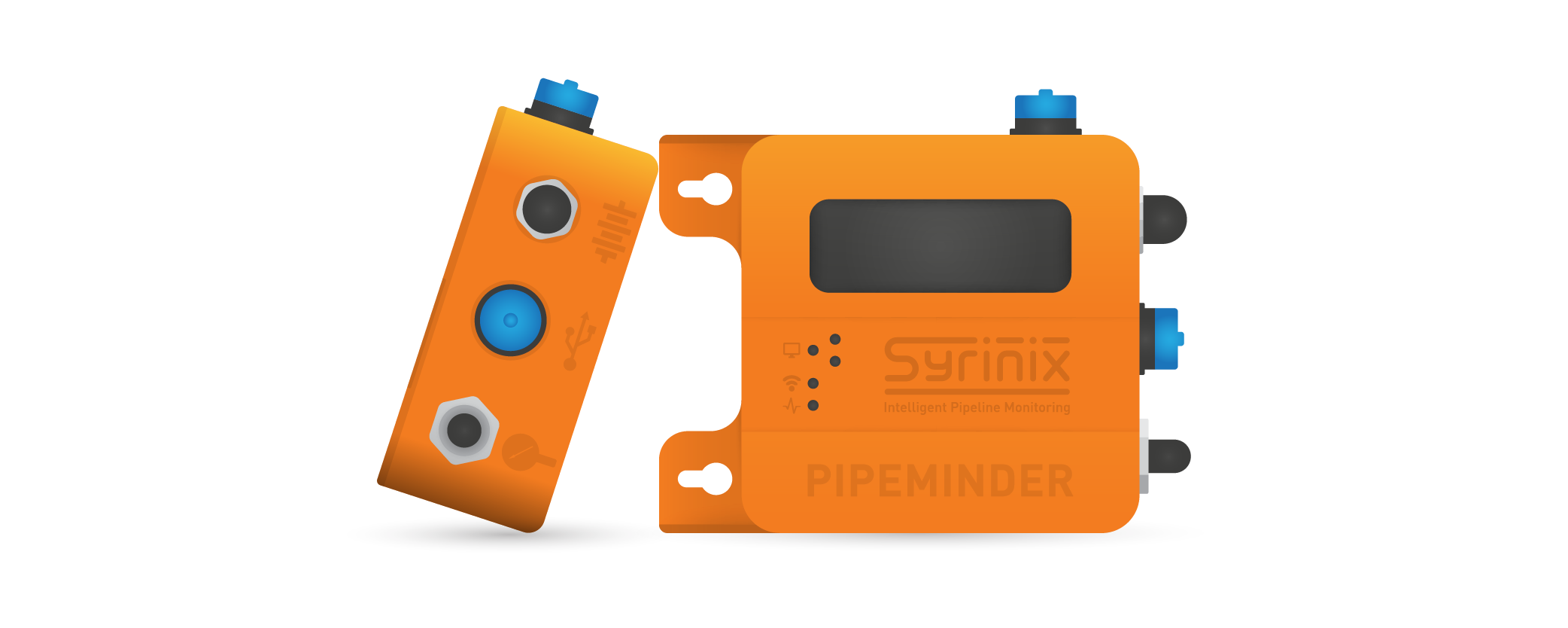



- Remote configuration
- Rechargeable battery
- Antenna options 4G connectivity
- Pressures of up to 20bar
- IP68 water and dust resistant
- CE and FCC certified
PIPEMINDER-S is a smart pressure monitor for potable water, suitable for use within both district metered areas (DMAs) and trunk mains.
The data collected from monitoring pressure transients or 'oscillations' that cause pipeline fatigue can be used pro-actively to reduce leakage, prevent bursts and ultimately extend asset life.
This means improved repair planning, water loss reduction and avoiding emergency repair costs.
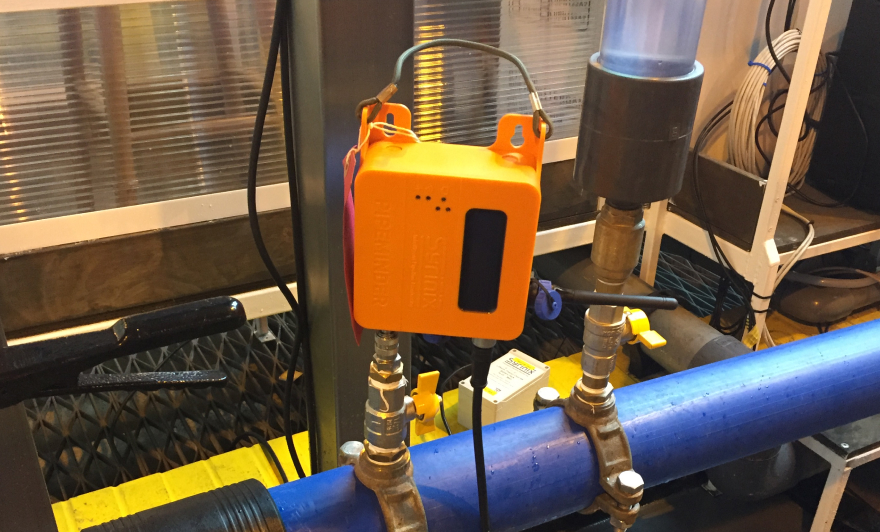
Superior data capture
PIPEMINDER-S captures high frequency, high resolution data, and detects events that other systems may miss. It can store and upload this high resolution data for 30 days, enabling detailed analysis of past events.
Smart event alerts
Syrinix's RADAR data hub provides customisable smart event alerts so users receive immediate notification of critical events, without overloading them with non-essential issues.
Long lasting power
PIPEMINDER-S comes with a rechargeable battery as standard. The life between charges is dependent on the ambient temperature, cellular signal quality and standard operating use.
Assuming the communication of three transient events per day, the battery is estimated to provide power for 12-18 months between charges.
Lifetime support and maintenance
Our specialist operations team are on hand to provide support and guidance throughout the active service life of your PIPEMINDER-S devices.
We offer full on-site training to network operators to ensure the devices are installed and optimised for the best results.
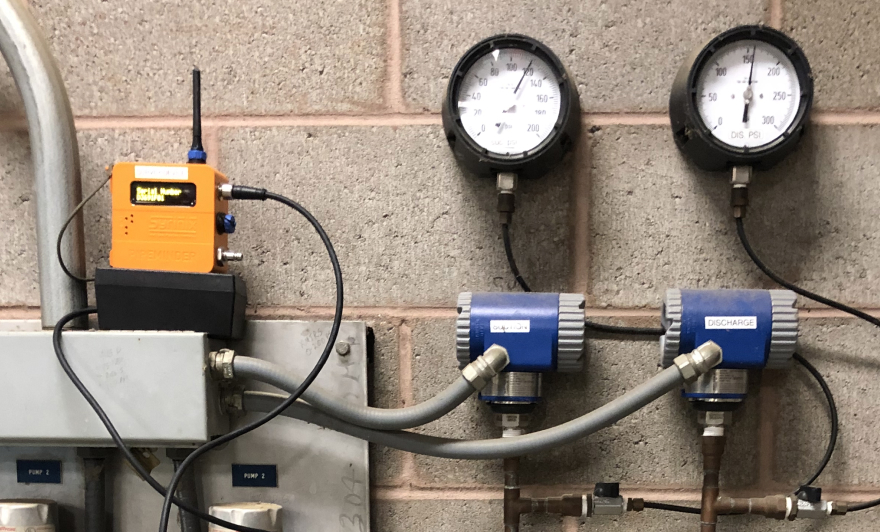
Deeper analysis and insight
All data is displayed in Syrinix's RADAR data hub. Using the S3 scoring (see below), alerts to unusual pressure events are triggered, so information can be tracked, reviewed and acted on.
The Syrinix 'S3' severity score
Syrinix's S3 scoring system is a computed measure of pressure change over a certain time period.
Significant changes result in a high score, small changes over the period result in a lower score and continuously stable pressure score zero.
Tracking and profiling S3 for a particular site over time is an accurate measure of the pipeline’s transient activity and readily indicates if the activity level has increased, or if any mitigation work has been successful in reducing the score.
Event triangulation
When a large event is detected by more than two sensors, precision time stamping combined with an integrated GPS receiver records the units fixed position and sets the device time on deployment, after which an adaptive NPT (Network Time Protocol) process tempers the time.
This allows event locations to be triangulated and large bursts automatically located (Fig. 1) and immediately alerted.
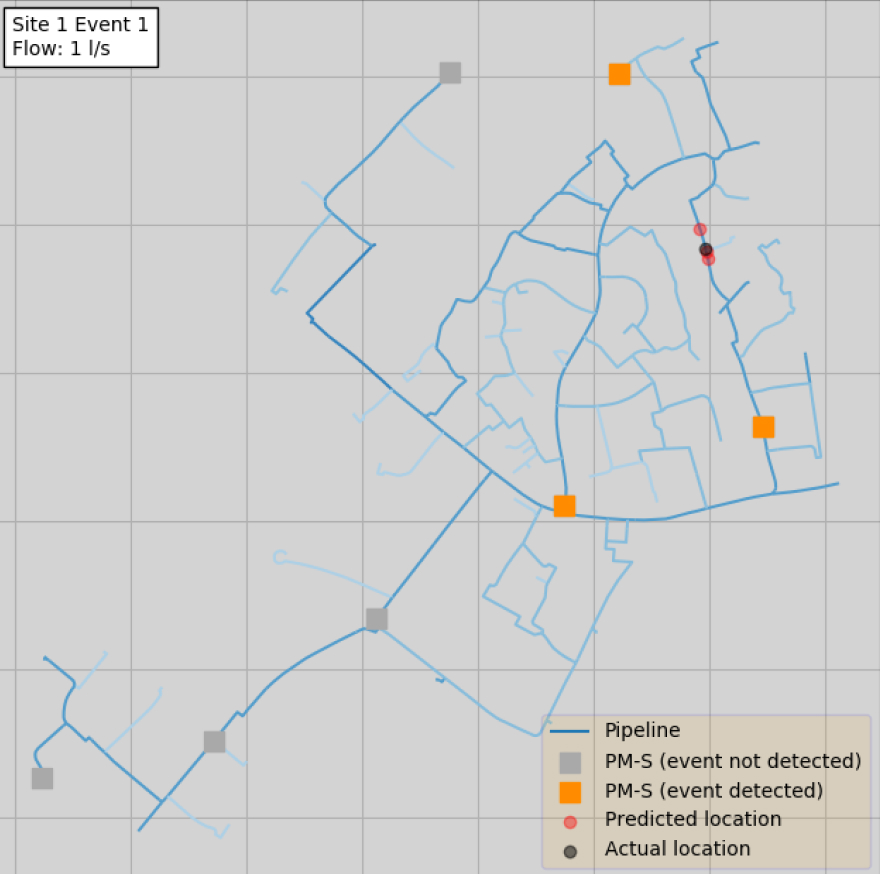
Syrinix news
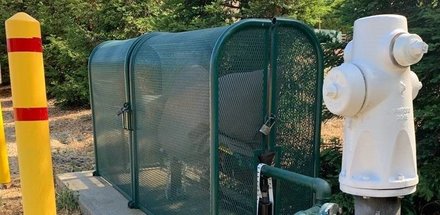
Contra Costa Water District
Data helps to solve Contra Costa Water District’s water pressure spike, mystery.
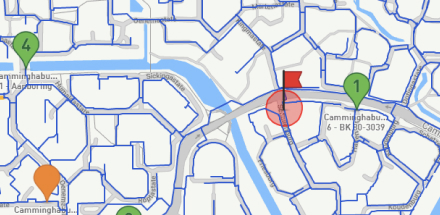
Vitens ‘Transient monitoring investigations’
A pilot project was implemented to discover how pressure transient monitoring could be used to localise network events.
Contact Us
Leave your details and we will be in touch.





